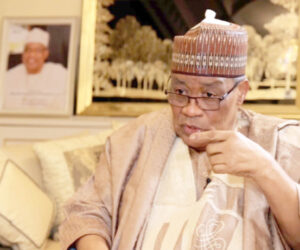It would seem that Nigeria is bidding to host the centenary edition of the Commonwealth Games in 2030. Since there has been no formal announcement from the Nigerian authorities, we will take the word of Commonwealth Sport (CS) President Dr Donald Rukare for it, who announced that both Nigeria and India have submitted formal bids to host the games.
I feel conflicted about this, as a Nigerian. I understand that as a country, it will be a great opportunity to showcase our pride and demonstrate to the world our strength as a good host of sporting events, and once more put ourselves in the shop window for business, tourism, and good publicity globally. But there is that sneaking suspicion that this is yet again another grandiose project that will be used as a conduit for looting, wrapped in the language of patriotism.
It is not pessimism but something drawn from experience and our recent history. The memory of COJA, the 2003 All Africa Games in Abuja, still lingers like an unhealed scar, a reminder that hosting a sporting spectacle is not merely about glory; it is also about governance, priorities, and accountability.
SPONSOR AD
The Commonwealth Games are no small matter. They bring together thousands of athletes from across the globe, drawing television audiences in the hundreds of millions and offering host countries a chance to showcase themselves to the world. For nations that get it right, the benefits can be immense: improved infrastructure, a tourism boom, new jobs, and the intangible but powerful boost of international prestige. On paper, Nigeria’s bid to host the 2030 edition makes sense. We are Africa’s most populous nation, a giant in sports, particularly athletics, boxing, and football, and a country brimming with youthful energy. Hosting could be an opportunity to rebrand Nigeria, to project hope instead of crisis. But rebranding Nigeria for the international gaze would be meaningless if Nigeria is not rebranded for Nigerians. Such projects are not about whimsical dreams but about fiscal and physical discipline. And in this regard, Nigeria’s track record is troubling.
In 2003, Abuja hosted the 8th All Africa Games, popularly called COJA. It was Nigeria’s chance to show continental leadership, to position Abuja as a modern capital city, and to bask in the continental spotlight. Billions were poured into new roads, stadia, athletes’ villages, and transport networks. For three weeks, the city glittered. The opening ceremony was a spectacle. Nigeria topped the medals table, and for a fleeting moment, Nigerians were united in pride.
Then the dust settled.
The grand stadiums and facilities, built at enormous cost, quickly fell into disuse. Maintenance was neglected. White elephant projects sprouted across the city, with gleaming buildings having no long-term purpose shooting up.
Worse were the allegations of contract inflation, kickbacks, and outright looting that tainted what was meant to be a national achievement. In the end, Abuja was left with debts and abandoned sites, not a sustainable sporting legacy. Today, COJA is remembered less for the victories on the track or the pride it was meant to give us as hosts, and more for the missed opportunity and the corruption the whole fiasco was swaddled in.
As we throw our hearts into a bid to host another sporting event, this is the shadow that looms over it. Nigerians have every right to ask: what will be different this time?
To dismiss the idea outright would be unfair, of course. Hosting major events can leave behind positive legacies. After all, we have seen countries like South Africa and Brazil build infrastructures to host major sporting events, in both cases, the World Cup, and to date, those infrastructure are benefiting the people of those countries. Nigeria needs infrastructure renewal such as roads, hotels, and public transport, which have been dire in our country, and an international event could provide the impetus to build them. If properly managed, the Games could boost tourism, create jobs, and energise our youth to pursue sports as a viable career. Sports have a unique ability to unify Nigerians across ethnic and religious lines, and no doubt a global event could help restore some sense of collective pride.
Perhaps hosting could be an opportunity to correct the mistakes of COJA, to demonstrate that Nigeria has matured in governance and planning, even if nothing significant demonstrates this to the average Nigerian grappling with a chronic shortage of infrastructure or who can’t even comprehend the idea of stable, uninterrupted power supply. Other nations have turned similar experiences into success stories. If Nigeria learns the right lessons, 2030 could be a milestone rather than a millstone.
Yet optimism must be tampered with realism. Nigeria faces overwhelming challenges, among which are insecurity in several regions, inflation that is eroding household incomes, schools and hospitals in dire condition, and an economy still overdependent on oil. In such circumstances, can the government justify spending billions on a sporting event?
The risk of repeating COJA’s mistakes is high. Without stringent accountability, funds will be siphoned off into private pockets, contracts inflated, and projects abandoned after the closing ceremony. We cannot afford another generation of white elephants—stadiums and facilities built for show but never meant to be put to the service of Nigerians, and soon become abandoned after the Games.
There is also the question of security. Can Nigeria guarantee the safety of thousands of athletes and visitors amid insurgencies, kidnappings, and banditry? The international embarrassment of a security lapse during the Games would outweigh any fleeting glory. I am sure this will be a key question the Commonwealth Sport will be assessing when doing their evaluation.
Finally, there is the opportunity cost. Every kobo spent on the Commonwealth Games is a kobo not spent on classrooms, hospitals, Primary Health Care Centres, or food security. For a country where millions go hungry daily, that is not a small trade-off. If Nigeria is serious about hosting the Commonwealth Games, certain conditions must be non-negotiable. First, there must be transparency from the bidding process to the final whistle. All contracts should be subject to public scrutiny, with civil society watchdogs monitoring expenditures.
Second, facilities must be designed with post-Games use in mind. Stadiums should double as community sports centres or school training grounds, not monuments to waste. Housing for athletes could be converted into affordable housing or student hostels afterwards. But in all likelihood, these will go to people who do not need them as they will be priced out of the range of the average Nigerian.
Finally, the government must prove that hosting the Games will not come at the expense of tackling pressing national crises. Nigerians must see tangible improvements in their daily lives, not just glossy billboards and fireworks displays.
The truth is that Nigeria deserves to dream big. Our people, our athletes, our artistes, our culture. We have the potential to shine on the global stage. The 2030 Commonwealth Games could be a chance to showcase that brilliance. But dreams must be matched with discipline.
COJA in 2003 showed us what happens when spectacle trumps substance: short-lived glamour followed by decades of regret. Nigeria cannot afford another COJA. If we must host, it should not be for the glory of a few officials or the vanity of political elites. It must be for the people, leaving behind legacies that outlast the medals.
As Nigerians, we must ask hard questions now, not after the Games are over. Are we prepared to demand accountability? Are we willing to prioritise the long-term over the short-term? Or are we once again allowing ourselves to be seduced by the glitter of an event that could leave us poorer than before?
Hosting the Commonwealth Games is not inherently bad. But without reform, transparency, and foresight, it will not be a dream worth chasing; it will be a distraction, and perhaps, another scandal in the making. With all things considered, I don’t see how Nigeria can host an honest game with the requisite transparency and accountability that Nigerians need. While the ambition is good, the reality is that the budget for hosting such an event would best be put towards other sectors of our infrastructure such as health, public transport and security that would serve Nigerians, not our ego. Once we get our country in shape, we can aspire to host the World Cup and Nigerians and the world will be fine with that.


